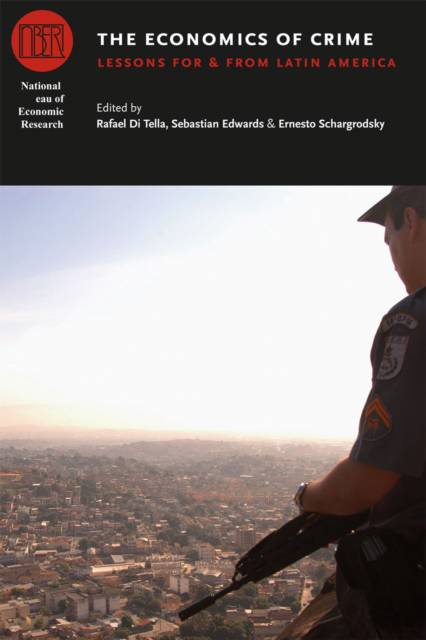
- Afhalen na 1 uur in een winkel met voorraad
- Gratis thuislevering in België vanaf € 30
- Ruim aanbod met 7 miljoen producten
- Afhalen na 1 uur in een winkel met voorraad
- Gratis thuislevering in België vanaf € 30
- Ruim aanbod met 7 miljoen producten
Zoeken
The Economics of Crime
Lessons For and From Latin America
€ 178,45
+ 356 punten
Omschrijving
Crime rates in Latin America are among the highest in the world, creating climates of fear and lawlessness in several countries. Despite this situation, there has been a lack of systematic effort to study crime in the region or the effectiveness of policies designed to tackle it. The Economics of Crime is a powerful corrective to this academic blind spot and makes an important contribution to the current debate on causes and solutions by applying lessons learned from recent developments in the economics of crime. The Economics of Crime addresses a variety of topics, including the impact of kidnappings on investment, mandatory arrest laws, education in prisons, and the relationship between poverty and crime. Utilizining research from within and without Latin America, this book illustrates the broad range of approaches that have been efficacious in studying crime in both developing and developed nations. The Economics of Crime is a vital text for researchers, policymakers, and students of both crime and of Latin American economic policy.
Specificaties
Betrokkenen
- Uitgeverij:
Inhoud
- Aantal bladzijden:
- 488
- Taal:
- Engels
- Reeks:
Eigenschappen
- Productcode (EAN):
- 9780226791852
- Verschijningsdatum:
- 15/06/2012
- Uitvoering:
- Paperback
- Formaat:
- Trade paperback (VS)
- Afmetingen:
- 152 mm x 229 mm
- Gewicht:
- 707 g

Alleen bij Standaard Boekhandel
+ 356 punten op je klantenkaart van Standaard Boekhandel
Beoordelingen
We publiceren alleen reviews die voldoen aan de voorwaarden voor reviews. Bekijk onze voorwaarden voor reviews.






